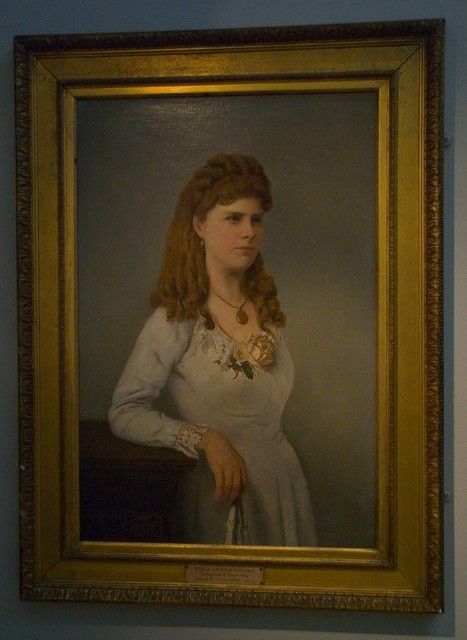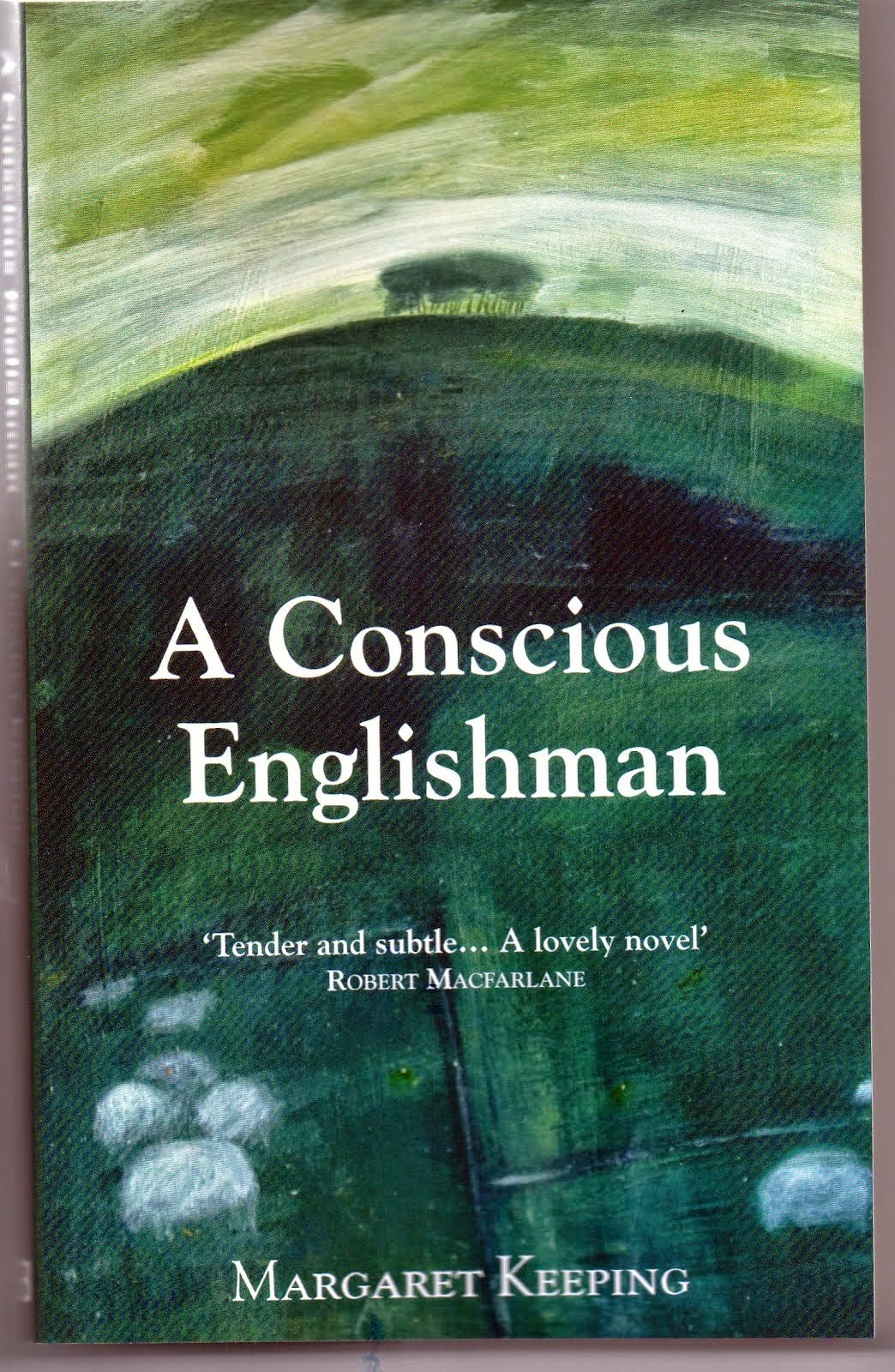'Briefly, in 1730, the most talked about poet in England was an agricultural labourer. The story of Stephen Duck is a remarkable one, as the title page of the unauthorised collection of his verse,
Poems on Several Subjects, explains. He was 'lately a poor Thresher in a Barn in the County of Wilts, at the Wages of Four Shillings and Six Pence per Week' until his poems
"were publickly read by The Right Honourable the Earl of Macclesfield, in the Drawing-Room at Windsor Castle, on Friday the 11th of September, 1730, to her Majesty. Who was thereupon most graciously pleased to take the Author into her Royal Protection, by allowing him a Salary of Thirty Pounds per Annum, and a small House at Richmond in Surrey, to live in, for the better Support of Himself and Family."'
I remembered that Thomas had written appreciatively, in 'A Literary Pilgrim in England', about John Clare, much better known, for me, as a farm-worker-poet,
'goose-tending at seven, threshing and following the plough before he was in his teens.' Duck was born almost a century earlier and was perhaps unfortunately constrained by the then current 'Pastoral' tradition to write about nymphs and shepherds with fancy names rather than what he might have written using his own experience. Sometimes he could, as in his description of threshing, so that Thomas says,
'Somethings he did write that were true and were unlikely to have been written by anyone else. If he could have thrown Cuddy and Chloe on to the mixen and kept to the slighted homely style...Instead of merely writing as if he had been to Oxford, he might have reached men's ears.' Then there is
William Barnes, always called the Dorset dialect poet - I recall he has a statue in Dorchester.
I knew this one - but in another guise entirely - the rather lovely Linden Lea.
 William Barnes
William Barnes
My Orcha’d in Linden Lea.
.
'Ithin the woodlands, flow’ry gleäded,
By the woak tree’s mossy moot,
The sheenèn grass-bleädes, timber-sheäded,
Now do quiver under voot;
An’ birds do whissle over head,
An’ water’s bubblèn in its bed,
An’ there vor me the apple tree
Do lean down low in Linden Lea.
When leaves that leätely wer a-springèn
Now do feäde ’ithin the copse,
An’ païnted birds do hush their zingèn
Up upon the timber’s tops;
An’ brown-leav’d fruit’s a-turnèn red, In cloudless zunsheen, over head,
Wi’ fruit vor me, the apple tree
Do leän down low in Linden Lea.
Let other vo’k meäke money vaster
In the aïr o’ dark-room’d towns,
I don’t dread a peevish meäster;
Though noo man do heed my frowns,
I be free to goo abrode,
Or teäke ageän my hwomeward road
To where, vor me, the apple tree
Do leän down low in Linden Lea.
The 'standardised' version has music by Ralph Vaughan-Williams. You can hear it on YouTube.
Edward Thomas comments that Barnes was a schoolteacher, then a clergyman and a pillar of the community - he thinks Barnes was right to use the dialect and that the poems have a validity of their own.
There will be more Barnes poems on the Radio 4 web-site and there is a William Barnes society.
Then there's
Thomas Hardy
 |
| Hardy's birthplace & my own old 'Literary Pilgrim' book |
 What immediately struck me was the date Thomas was writing, Spring 1913.
What immediately struck me was the date Thomas was writing, Spring 1913. The poems of Hardy's that he was considering couldn't include what most people regard as Hardy's best, the 'Emma poems' of 1912 - 13, poems of grief and remorse following the death of his wife whom he 'd come to neglect and despise. I assume that Edward never saw them, published as they were in Moments of Vision, 1917. I think he would have understood only too well.

Young Emma
His comments on the poems he has - the Dynasts and the satires, chiefly, relate to what he calls an 'obsession' with the'
blindness of Fate, the carelessness of Nature and the insignificance of Man, crawling in multitudes like caterpillars, twitched by the Immanent Will hither and thither .' He deplores this emphasis in Hardy.
This made me think immediately of a poem of Thomas's - it appears in my novel:
'He thought of his sonnet written a year before, February Afternoon, where ploughing still continued in spite of war. It was true even here: a few elderly men were still ploughing in the fields nearby, following the ancient boundaries. Man and the plough and the gulls and starlings that followed them had existed for a thousand years and would for another thousand, while wars were fought and an indifferent, stone-deaf, stone-blind God looked down on it all. 'But now, perhaps because of what he knew of war, Thomas seems to be taking the same position.Poems:February Afternoon MEN heard this roar of parleying starlings, saw,
A thousand years ago even as now,
Black rooks with white gulls following the plough
So that the first are last until a caw
Commands that last are first again,--a law
Which was of old when one, like me, dreamed how
A thousand years might dust lie on his brow
Yet thus would birds do between hedge and shaw.
Time swims before me, making as a day
A thousand years, while the broad ploughland oak
Roars mill-like and men strike and bear the stroke
Of war as ever, audacious or resigned,
And God still sits aloft in the array
That we have wrought him, stone-deaf and stone-blind.
And Hardy's, The Voice or Woman much missed
Woman much missed, how you call to me, call to me,
Saying that now you are not as you were
When you had changed from the one who was all to me,
But as at first, when our day was fair.
Can it be you that I hear? Let me view you, then,
Standing as when I drew near to the town
Where you would wait for me: yes, as I knew you then,
Even to the original air-blue gown!
Or is it only the breeze, in its listlessness
Travelling across the wet mead to me here,
You being ever dissolved to wan wistlessness,
Heard no more again far or near?
Thus I; faltering forward,
Leaves around me falling,
Wind oozing thin through the thorn from norward,
And the woman calling.


 William Barnes
William Barnes

 Young Emma
Young Emma
No comments:
Post a Comment